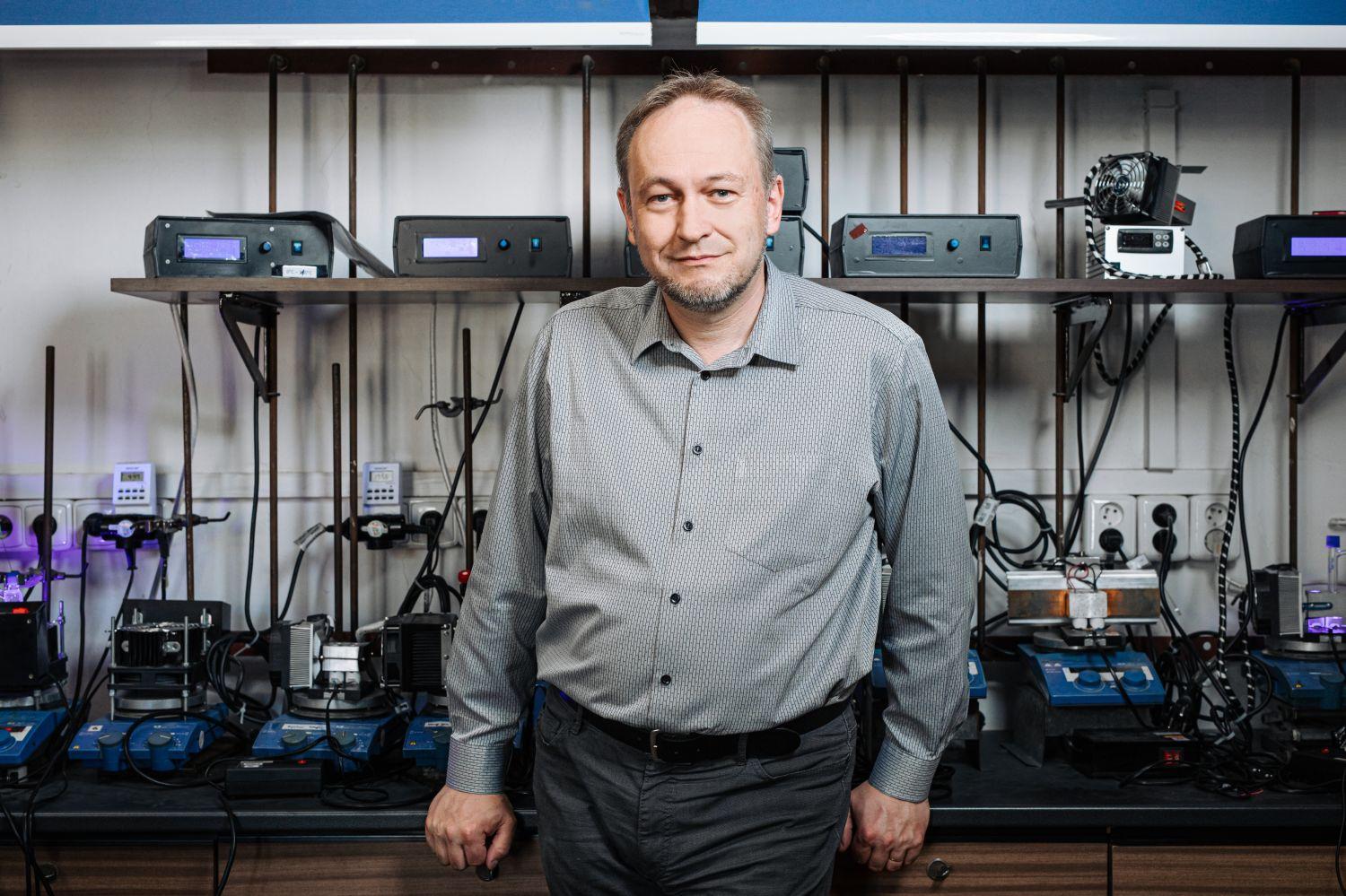
Radek Cibulka awarded by Rudolf Lukeš Prize for 2022
The Rudolf Lukeš Prize for 2022, jointly awarded by the Czech Chemical Society and the Experientia Foundation, goes to Professor Radek Cibulka from the University of Chemistry and Technology (UCT) in Prague. The winner’s research focuses on flavins – vitamin B2 derivatives – as catalysts for organic reactions. “We are designing new flavin derivatives with the objective of making chemical transformations in organic synthesis more efficient. We have developed several new methods based on ‘tailor-made’ catalysts, whose structures are inspired by naturally existing flavins and their excitation by visible light” explains Prof. Cibulka.
Organic synthesis – the research focus of this year’s Rudolf Lukeš Prize winner – is an important tool that enables a host of useful substances from pharmaceuticals to cleaning products and cosmetics to be made from widely available raw materials. “There are many methods of transforming one substance into another. However, many of them are inefficient or require expensive or hazardous reagents. In our laboratory we draw inspiration from the activity of natural enzymes, especially those containing flavins. We design new flavin derivatives and use them to make the chemical transformations in organic synthesis more efficient. These are then used in reactions analogous to those mediated by flavins in the natural world. And for some flavin derivatives, we have been able to find a completely new function,” explains the award-winning scientist.
Radek Cibulka’s research group at the UCT in Prague has already developed several new methods for the efficient transformation of organic compounds based on “tailor-made” catalysts with structures inspired by natural flavins. One of the important properties of these substances is their ability to absorb light in the visible spectrum. “When they are irradiated, flavins are transformed into an excited state and become more reactive. This property can be used to design even more efficient chemical transformations, or transformations that are not possible without light,” says Cibulka. “They can play a role in photochemical transformations that occur through various mechanisms. In addition, excited flavins can be used as both strong reducing and oxidizing agents, which makes them exceptional photocatalysts,” he adds.
The Rudolf Lukeš Prize is awarded for an outstanding collection of original work in the field of organic chemistry published in prestigious international journals in the previous 5 years, supplemented with a personal reward of 100,000 CZK from the Experientia Foundation. This year’s prize will be formally presented to Radek Cibulka on 11 November at the conference entitled “Advances in Organic, Bioorganic and Pharmaceutical Chemistry - Liblice 2022”.
As in previous years, the winner of the prize was selected by an independent international panel of leading chemists from around the world. The international committee’s justification of Radek Cibulka’s selection reads: “Prof. Cibulka’s research in the field of flavin photochemistry and organocatalysis has translated into attractive synthetic applications. His research publications are internationally recognised and provide a mechanistic overview of the role of flavins in catalysis.”
“I value the prize immensely,” Radek Cibulka explains. I am well aware that there is a lot of competition in the field of organic chemistry in the Czech Republic and I am also very familiar with the calibre of the Czech scientists who have won the Lukeš prize before me. I also value the award because of Rudolf Lukeš himself and his significant contribution to the formation of the Institute of Organic Chemistry at the UCT in Prague, the research institute where I work. Last but not least, I am delighted for all my students and colleagues. Scientific work is a collective endeavour, and without the contribution of each and every one of them we would never have achieved such interesting results.”
Professor Radek Cibulka obtained his PhD in organic chemistry at the University of Chemistry and Technology (UCT) in Prague and went on to complete a postdoctoral fellowship under Professor Burkhard König at the University of Regensburg. He currently works at the UCT in Prague, where he heads the Department of Organic Chemistry and is also Chair of the Academic Senate. His research group at the UCT focuses on organic catalysis and photocatalysis. He is the recipient of numerous scientific awards, including the Alfred Bader Prize and the Sigma-Aldrich Award. In 2020/2021, he was awarded a Chemistry Europe Fellowship, the association's highest award, which honours the work of outstanding European scientists.
The University of Chemistry and Technology Prague (UCT Prague) is a natural center of study and cutting-edge research. One of the largest educational and research institutions in Central Europe, it specializes in technical chemistry, chemical and biochemical technologies, material and chemical engineering, food chemistry, and environmental studies. Remarkably, of the more than 4,000 students at the school, 700 are enrolled in PhD programs on average. Some of the study programs on offer at UCT are unique in the Czech Republic and are key to the future of the entire country. The school collaborates with more than 100 academic institutions, namely within Europe but also in the USA, Canada, Japan, Vietnam, and elsewhere.
Contact: Michal Janovský, spokesman, telephone: +420 733 690 543, e-mail: michal.janovsky@vscht.cz







